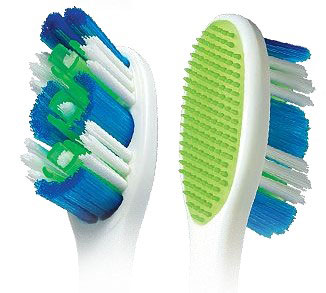A beautiful smile starts with an excellent home care, so here are a few guidelines to help you lay the foundation for a healthy mouth.
 BRUSHING
BRUSHING
Dr. Bae and her Hygienist recommend you brush at least twice a day. After eating, sugars and carbohydrates from food left on teeth combine with the bacteria in your mouth. This produces acids that attack your teeth, leaving you susceptible to tooth decay. A good tooth cleaning will help remove dental plaque bacteria and reduce your chances of getting dental cavities.
For proper brushing techniques, hold your toothbrush at a 45-degree angle towards the gums. Brush in a back-and-forth motion, making sure to reach every surface of each tooth. And don’t forget the tongue — brushing the tongue will further remove the bacteria that cause bad breath!
Remember, a great rule to live by is to brush longer, not harder. You should brush for at least two minutes to remove as much plaque as possible. Harder brushing won’t actually get teeth cleaner — it can irritate the tissues in your mouth and actually cause gum damage! Use a soft-bristled toothbrush to protect your gums, and be sure to replace your toothbrush every three months.
FLOSSING
No matter how well you brush, there are some areas you just won’t be able to reach. Flossing removes dental plaque that’s hiding in between teeth. To floss correctly start by holding the floss securely with each hand, and ease the floss between teeth. Gently rub the floss up and down, and curve it towards each tooth to cover more surface area. Once you reach the top, slide it under your gum line to remove plaque from beneath the gums.
Flossing at least once a day is recommended to remove the ongoing accumulation of dental plaque that forms between teeth. If you have trouble flossing, dental products are available to help — waxed floss makes for easier maneuvering and floss holders assist those who have trouble handling the stringy material.
MOUTHWASH
Antibacterial mouthwashes can also remove the bacteria that cause dental plaque. This helps prevent gingivitis, the first stage of gum disease. Like fluoride toothpastes, fluoride rinses help strengthen teeth and prevent tooth decay.
DIET
Healthy eating habits are an equally important part of your oral hygiene regimen. Since sugars and carbohydrates promote tooth decay, the more you eat, the better chances you have of damaging your teeth. Instead, focus on protecting your oral health by eating nutritional foods.




